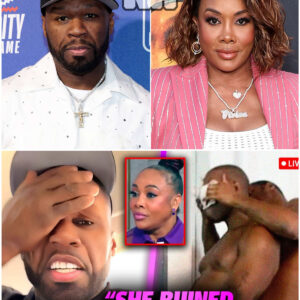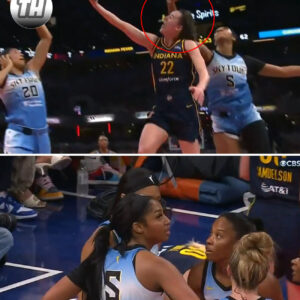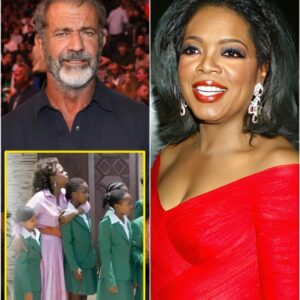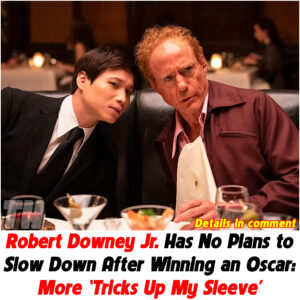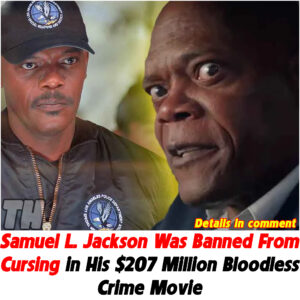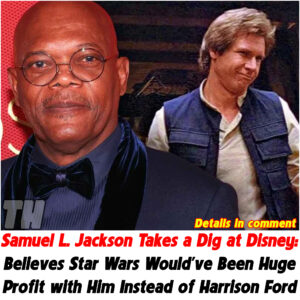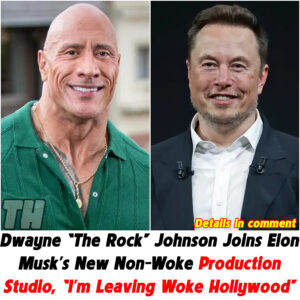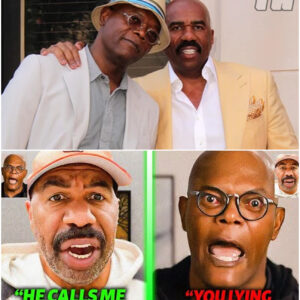In the ever-evolving landscape of music and culture, few artists stir as much debate as Eminem, the rapper known as much for his razor-sharp wit as for his contentious lyrics.
Recently, a generational divide has emerged, pitting Millennials against Gen Z in a battle over the legacy and relevance of Slim Shady. Eminem, whose real name is Marshall Mathers, has enjoyed a career that many in the industry can only dream of, amassing awards, accolades, and record sales that place him among the most successful rappers of all time.
Yet, with great fame comes great scrutiny, and Eminem’s work has not escaped the critical eye of Gen Z, a cohort that has raised concerns over lyrics they find problematic. This has sparked a robust defense from Millennials, who view Eminem’s music as a pivotal part of their cultural landscape.
Through a lens of understanding and intrigue, we’ll navigate the choppy waters of generational perspectives on music, artistic expression, and the phenomenon known as cancel culture. Join us as we dissect the elements of this discussion, offering insights and fostering a space for dialogue across the divide.
Eminem’s Legacy and Achievements

Eminem, also known as Slim Shady, stands as a towering figure in the realm of rap and hip-hop. With a career spanning over two decades, his journey from the gritty streets of Detroit to the pinnacle of global music success is nothing short of remarkable. Eminem’s discography is a testament to his enduring talent and appeal, having sold approximately 220 million records worldwide. This staggering achievement not only cements his status as one of the best-selling music artists of all time but also showcases his broad and lasting impact on the music industry.
Beyond commercial success, Eminem’s trophy cabinet is laden with accolades that many artists can only aspire to. He has clinched 15 Grammy Awards, a testament to his artistic prowess and recognition from his peers. Furthermore, Eminem’s storytelling and lyrical genius were immortalized in cinematic history when he won an Oscar for “Lose Yourself,” a song that became an anthem of resilience and determination from the movie “8 Mile.”
Eminem’s influence extends beyond numbers and trophies; he has shaped the sound and direction of rap music, infusing it with his unique blend of raw emotion, intricate storytelling, and a knack for controversy. Despite facing criticism for his often provocative lyrics, Eminem has remained a central figure in the dialogue about freedom of expression and the boundaries of artistic creativity. His legacy is a complex tapestry of unapologetic self-expression, musical innovation, and a reflection of the societal issues that have defined his era.
It’s crucial to acknowledge Eminem’s indelible mark on the cultural and musical landscape. His journey from an underdog to a global icon is a narrative of overcoming adversity, challenging the status quo, and etching a permanent mark on the history of music.
The Gen Z Controversy
The latest chapter in Eminem’s storied career involves a clash not with fellow artists or critics but with a generation largely defined by its progressive values and digital nativity: Generation Z. Born between 1997 and 2012, this cohort has grown up in a world where social media platforms serve as arenas for public discourse and activism, including the call-out and cancel culture phenomena. It’s within this context that Eminem’s lyrics, particularly from past hits like “Love The Way You Lie,” have come under scrutiny.
“Love The Way You Lie,” a powerful track about a volatile relationship, featuring Rihanna, has been singled out by Gen Z critics for lyrics that they argue glorify domestic violence. A notable example is the line where Eminem talks about tying his girlfriend to the bed and setting the house on fire should she try to leave him. This song, emblematic of Eminem’s penchant for blending grim narratives with compelling beats, has ignited a debate over the impact of his words and the responsibility of artists in shaping public discourse on sensitive issues.
The controversy gained momentum on platforms like TikTok, where a now-deleted post criticizing the song amassed over 120,000 likes, signaling a significant portion of Gen Z’s discomfort with what they perceive as problematic themes in Eminem’s catalog. This digital uproar is reflective of a broader generational shift towards heightened sensitivity to the portrayal of violence and the perpetuation of harmful stereotypes in media and entertainment.
Gen Z’s critique of Eminem is not just about a single song; it’s emblematic of a wider conversation about cultural evolution and the lines between artistic freedom, moral responsibility, and societal impact. As this generation continues to wield significant influence on social media, their voices contribute to reshaping the legacy of artists and entertainers from previous eras, challenging communities to reevaluate what is considered acceptable in the name of art.
Millennial Backlash and Defense
In the face of Gen Z’s critique, Millennials, those born between 1981 and 1996, have come out in strong defense of Eminem, rallying around the rapper as a symbol of their own cultural upbringing and the complexities of artistic expression. This defense isn’t just about nostalgia; it’s a statement on the evolution of music, societal norms, and the ever-present debate over the limits of free speech and artistic freedom.
Millennials have taken to social media to counter the criticism from Gen Z, highlighting the importance of context when evaluating Eminem’s lyrics. They argue that Eminem’s work, particularly his early albums, played a crucial role in addressing and bringing to light the darker aspects of society, using provocative lyrics to challenge listeners and provoke thought. Furthermore, Millennials point out that Eminem’s abrasive and controversial style was, in part, a commentary on the societal issues of the time, blending satire and storytelling to navigate the complexities of fame, personal struggle, and societal critique.
One common defense points to Eminem’s intentional use of shock value as a tool to push boundaries and stimulate conversation, suggesting that his work should be seen as a reflection of the artist’s role as a social commentator. For instance, references to his song “Stan” highlight how Eminem has influenced the lexicon of fandom and obsession, illustrating the impact of his narrative abilities beyond mere controversy.
Moreover, Millennials challenge the notion of canceling artists for their past work, arguing that it dismisses the possibility of growth and the nuanced understanding of art as a reflection of its time. They contend that Eminem’s evolution as an artist, including his responses to criticism and his willingness to engage with complex topics, demonstrates a trajectory of maturity and adaptability.
The millennial defense of Eminem is not just about preserving the legacy of a music icon but also about defending the principle that art can be uncomfortable, provocative, and still profoundly meaningful. They argue that attempting to “cancel” Eminem overlooks the broader context of his career and the critical role that challenging art plays in society. Through their vocal support, Millennials underscore the importance of dialogue and reflection in the consumption of music and culture, advocating for a balanced approach that considers the artist’s intent, the societal context, and the evolving nature of public sensibilities.
The Heart of the Matter: Lyrics and Impact

At the core of the debate between Gen Z’s call for accountability and Millennials’ defense of Eminem lies a fundamental question: what is the role of controversial lyrics in music and art, and how do they impact society? This discussion extends beyond a single artist or song, touching on broader themes of freedom of expression, the artist’s responsibility, and the audience’s role in interpreting and reacting to creative works.
The Role of Controversial Lyrics in Art
Controversial lyrics have long been a staple of artistic expression, serving as a mirror to society’s darkest corners, challenging norms, and pushing the boundaries of comfort. Artists like Eminem use their platform to explore themes of violence, addiction, and personal turmoil, often drawing from their own experiences. These narratives, while unsettling, can foster empathy, understanding, and dialogue, offering listeners a glimpse into realities far removed from their own.
However, the impact of these lyrics cannot be overlooked. Critics argue that, without careful consideration, such content can desensitize audiences to serious issues or, worse, glamorize harmful behaviors. The debate then becomes a balancing act between preserving artistic freedom and ensuring that this freedom does not come at the expense of societal wellbeing.
Navigating the Intersection of Art and Responsibility
The responsibility of an artist in shaping public discourse is a weighty one. Eminem’s work, with its raw portrayal of life’s complexities, invites listeners to reflect on their own prejudices and the societal constructs that shape their understanding of right and wrong. This reflection is crucial in art, where the goal is not only to entertain but to provoke thought and inspire change.
Yet, this does not absolve artists of the need for self-awareness and sensitivity to the messages they propagate. In an era where the lines between entertainment and advocacy are increasingly blurred, the power of music to influence attitudes and behaviors is undeniable. As such, artists must navigate the fine line between expression and impact, ensuring that their work contributes positively to the cultural dialogue.
The Audience’s Role
The audience, too, holds a piece of the puzzle. In consuming art, listeners are not passive recipients but active participants in the interpretive process. The controversy surrounding Eminem’s lyrics underscores the importance of critical engagement with music, encouraging listeners to question, critique, and seek deeper meaning in the art they consume.
As we navigate the complexities of this debate, it becomes clear that the conversation around controversial lyrics and their place in society is as much about the listeners and their engagement with art as it is about the artists themselves. In fostering a culture of thoughtful consumption and open dialogue, we can better appreciate the transformative power of music, even when it challenges us to confront uncomfortable truths.
Tips for Understanding Different Generational Perspectives on Music

The clash between Gen Z and Millennials over Eminem’s legacy highlights a broader conversation about how different generations perceive and engage with music. Understanding these perspectives can foster greater empathy and appreciation across age groups. Here are some tips to navigate and appreciate the generational divides in music tastes and interpretations:
Contextualize the Music: Recognize that music is a product of its time. What might seem controversial or groundbreaking in one era could be viewed differently in another. Research the social and cultural context in which a song or album was released to better understand its themes and impact.
Acknowledge Evolution: Artists and their audiences evolve. An artist’s earlier work might reflect attitudes and values that they or society no longer endorse. Appreciating an artist’s discography can involve recognizing their growth and the shifting landscapes of cultural norms.
Engage in Open Dialogue: Conversations across generations can illuminate different viewpoints and enrich your understanding of music. Instead of dismissing another’s perspective, explore the reasons behind their views. This can lead to a deeper appreciation of both the music and the people who love it.
Critique with Compassion: It’s possible to critique an artist or their work without advocating for their cancellation. Focus on specific aspects of the content that you find problematic and explain why, considering the broader implications for society and culture.
Celebrate Diversity in Music: Embrace the wide range of music that spans generations. Exploring genres and artists outside of your usual preferences can offer insights into the values and experiences of other age groups, enriching your musical landscape.
Understand the Role of Platforms: Different generations engage with music through different platforms, from physical albums and radio to streaming services and social media. These platforms shape how music is consumed, discussed, and shared, influencing perceptions and popularity.
Balance Artistic Freedom with Social Responsibility: Reflect on the balance between an artist’s right to express themselves and their impact on listeners. Consider how music influences attitudes and behaviors, and advocate for a responsible approach to contentious themes.
By employing these tips, fans and critics alike can navigate the complexities of generational divides in music with a more nuanced and empathetic approach. Understanding the multifaceted nature of music appreciation not only enriches our own experience but also bridges the gap between different generations, fostering a more inclusive and understanding cultural landscape.
Bridging the Musical Generation Gap
In the clash between Millennials and Gen Z over Eminem’s music, we’ve witnessed more than just a debate about lyrics and legacy; we’ve seen a reflection of the broader tensions between different generations and their cultural perspectives. As the dust settles on this controversy, it’s essential to recognize the value of dialogue, empathy, and understanding in navigating these divides.
While the debate over Eminem may seem polarizing, it also presents an opportunity for connection and growth. By acknowledging the validity of differing viewpoints and engaging in respectful discourse, we can find common ground amidst the cacophony of voices. Whether we’re Millennials defending our musical icons or Gen Z challenging the status quo, our shared love for music unites us in a common pursuit of expression, identity, and meaning.
Music, like society itself, is diverse and ever-changing. Each generation brings its own experiences, values, and tastes to the table, enriching the tapestry of musical expression. Instead of viewing generational differences as obstacles, let’s celebrate them as opportunities to broaden our horizons and deepen our appreciation for the rich tapestry of human creativity.
As we move forward, let’s carry with us the lessons learned from this debate. Let’s continue to engage with music thoughtfully, critically, and compassionately. Let’s amplify marginalized voices, challenge harmful stereotypes, and uplift artists who inspire positive change. And most importantly, let’s remember that music has the power to transcend generational boundaries, bridging divides and bringing us closer together as a global community.
The clash over Eminem’s music is not just about one artist or one generation; it’s about the enduring power of music to shape our collective consciousness and spark meaningful conversations that transcend time and place. So let’s keep listening, keep learning, and keep striving to build a more inclusive and harmonious world through the universal language of music.
News
Angel Reese Took A Direct Shot At Caitlin Clark Over Social Media Before WNBA Meeting
Caitlin Clark and Angel Reese have captured the attention of the entire sports world ever since the 2023 NCAA Championship. Ever since these two 22-year-old women faced off in that…
50 Cent Breaks Down After Vivica Fox Leaks S3X Tape Of Him & His Secret Boyfriend
50 Cent’s Emotional Reaction to Vivica Fox Allegedly Leaking Sex Tape Involving Him and His Secret Boyfriend In a shocking turn of events, rapper and actor 50…
LOOK: Sky’s Angel Reese hits Fever’s Caitlin Clark in the head on shot block attempt, assessed Flagrant 1 foul
Clark hit the deck hard after taking a forearm to the head from Reese in the third quarter Getty Images Chicago Sky forward Angel Reese was assessed…
(VIDEO) Mel Gibson EXPOSES Oprah Winfrey And Hollywood’s Shady Behavior In New Film Sound of Freedom!
Mel Gibson’s New Film “Sound of Freedom” Allegedly Exposes Oprah Winfrey and Hollywood’s Shady Behavior Mel Gibson, renowned actor and filmmaker, has once again sparked controversy with…
FINAL: Caitlin Clark leads the Indiana Fever to their fifth win of the season with a 91-83 victory over Angel Reese’s Chicago Sky
The Indiana Fever are coming off a win against the Atlanta Dream and will look to continue that momentum on Sunday against the Chicago Sky. Indiana is 4-10 and Chicago sits…
Chicago Sky vs. Indiana Fever live updates: Caitlin Clark, Angel Reese meet again, third quarter underway
Fever beat Sky 91-83 For the second time this season, three of the top seven picks in April’s WNBA Draft — Caitlin Clark, Kamilla Cardoso and Angel…
End of content
No more pages to load
